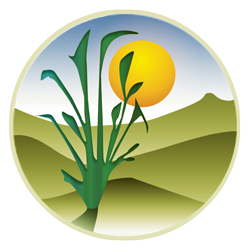The Sustainable Rangelands Roundtable has developed varied research, education and extension projects that expand knowledge about all aspects of rangeland sustainability, spanning social, ecological, and economic components, as well as their integration. Current efforts explore soil health a foundation for sustainable rangeland systems that provide ecosystem goods and service to society today, while also emphasizing conservation practices to ensure availability of these benefits for future generations. Other ongoing projects: explore efficacy of conservation programs from participant perspectives; economics of implementing conservation practices, such as those available for sage grouse habitat management; evaluate trade-offs among conventional and innovative energy production strategies; and outline monitoring to track management changes to improve resilience to climate change. Interactions among social, economic, and ecological information is a basic tenet of the conceptual framework SRR created to illustrate these associations and interaction pathways. Ensuring that projects provide accessible information for ranchers to assist in optimizing the sustainability is key, since two-thirds of rangelands are privately owned and managed; the Sustainable Ranch Management Guidebook offers a self-paced assessment to aid in identifying focal areas for future efforts. Engaging ranchers and other end-users in co-development of research projects is also critical to addressing management and policy questions, and recent projects grounded in such concepts of usable science have highlighted these linkages. Project publications, posters, presentations, and other informational materials are linked on this page.
Current Projects
Climate Change Adaptation & Resilience
- Climate Change on the Range: Monitoring and Adaptation for Sustainability (pdf – 19KB)
University of Wyoming Extension MP-139 – November 2019
Rangeland Ecosystem Goods & Service
- National and State Economic Values of Cattle Ranching and Farming-Based Ecosystem Services on Federal and Private Lands in the U.S. (pdf – 1.3MB)
University of Wyoming B-1367 – August 2020 - National and State Economic Values of Cattle Ranching and Farming Based Ecosystem Services in the U.S. (pdf – 1.7MB)
University of Wyoming B-1338 – May 2019
Sage Grouse Conservation and Economics
- Ranch-level Economics of Prescribed Grazing:
- Overall Project Summary
- MLRA 8 Summary – Washington
- MLRA 10 Summary – Oregon
- MLRA 12 Summary – Idaho
- MLRA 25 Summary – Nevada
- MLRA 32 Summary – northern Wyoming
- MLRA 34A Summary – southern Wyoming
- MLRA 52 Summary – northern Montana
- MLRA 58A Summary – eastern Montana
- MLRA 58B Summary – northeastern Wyoming
- Economics for Sage Grouse
- Sustainable Ranching for Greater Sage-Grouse Habitat Conservation: A Rancher’s Field Guidebook (University of Wyoming Extension B-1216.2)
- Ashwell, Nicolas Quintana & Maher, Anna T. & Tanaka, John A. & Ritten, John P. & Maczko, Kristie A. & Dyer, Holly & Kirkpatrick, Holly & Roberts, Kendall & Hilken, Thomas, 2019. “Ranch economics of prescribed grazing on rangelands: the case of representative ranches in Northern Montana,” Western Economics Forum, Western Agricultural Economics Association, vol. 17(1), April.
- Enterprise budget for 50-head, cow-calf private land ranch (University of Wyoming Extension B-1332). This 216-page bulletin contains 36 budgets representing typical costs and returns for small and large, public and private land cow-calf operations in Major Land Resource Areas (MLRA) 8, 10, 12, 23, 25, 28, 32, 34a, 52, 58a and 58b.
